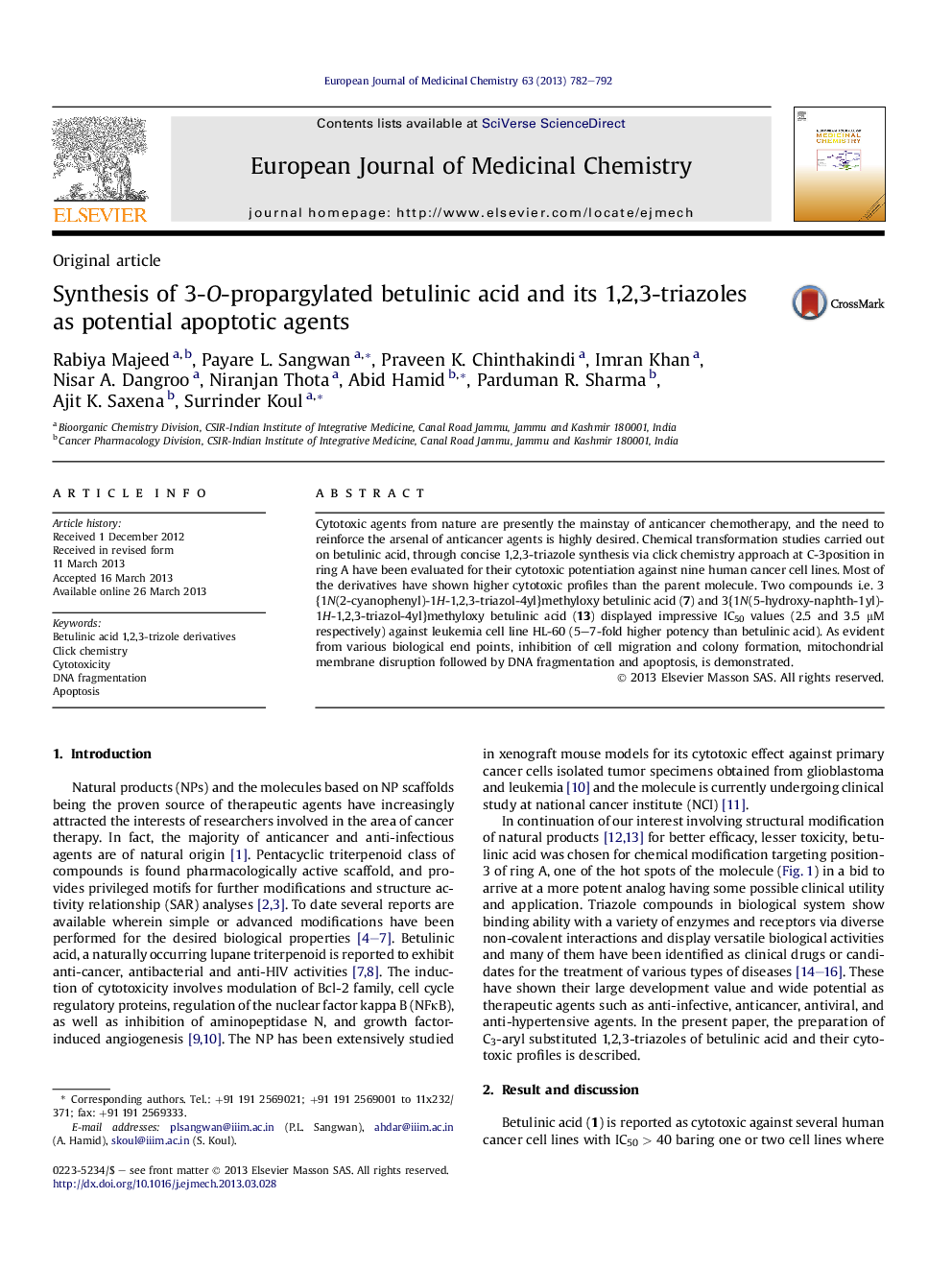| Article ID | Journal | Published Year | Pages | File Type |
|---|---|---|---|---|
| 1399226 | European Journal of Medicinal Chemistry | 2013 | 11 Pages |
•Synthesis of 19 betulinic acid derivatives.•Several derivatives were active against various human cancer cell lines.•The molecules are apoptosis inducers.
Cytotoxic agents from nature are presently the mainstay of anticancer chemotherapy, and the need to reinforce the arsenal of anticancer agents is highly desired. Chemical transformation studies carried out on betulinic acid, through concise 1,2,3-triazole synthesis via click chemistry approach at C-3position in ring A have been evaluated for their cytotoxic potentiation against nine human cancer cell lines. Most of the derivatives have shown higher cytotoxic profiles than the parent molecule. Two compounds i.e. 3{1N(2-cyanophenyl)-1H-1,2,3-triazol-4yl}methyloxy betulinic acid (7) and 3{1N(5-hydroxy-naphth-1yl)-1H-1,2,3-triazol-4yl}methyloxy betulinic acid (13) displayed impressive IC50 values (2.5 and 3.5 μM respectively) against leukemia cell line HL-60 (5–7-fold higher potency than betulinic acid). As evident from various biological end points, inhibition of cell migration and colony formation, mitochondrial membrane disruption followed by DNA fragmentation and apoptosis, is demonstrated.
Graphical abstractCytotoxic study of new betulinic acid triazoles showed two derivatives with 5 and 7-fold higher potency than betulinic acid against leukemia cancer cell line and found potential apoptotic agent.Figure optionsDownload full-size imageDownload as PowerPoint slide
